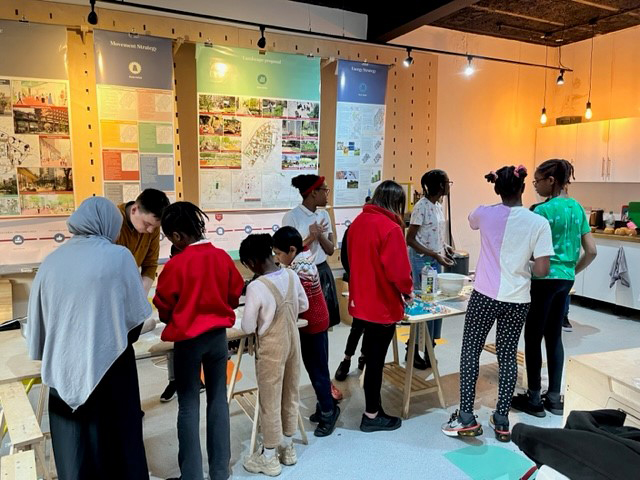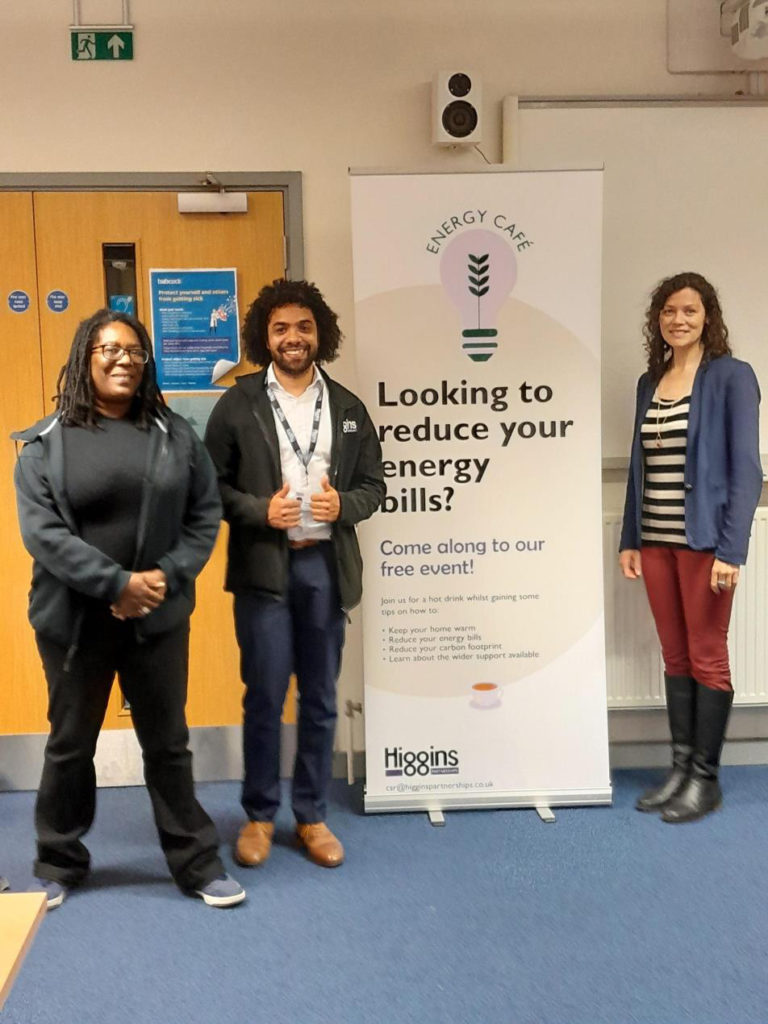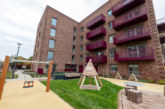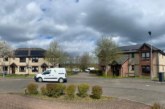
With the current cost-of-living crisis and increasing energy bills at the forefront of everyone’s minds, Higgins Partnerships has been supporting the local communities in which it works by hosting Energy Cafes and Food Clubs to provide those most in need with advice and new skills.
Amy Ross, Director of ESG at Higgins Partnerships commented: “We understand that the impact of the energy crisis and food poverty is having an effect on everyone, in particular the most vulnerable residents within the communities we work, so we were keen to provide help and advice to those who need it most.
“We have trained two members of our team to gain their Energy Awareness Level 3 qualifications which has given them the knowledge and skills to host energy cafes and work with residents to teach them how to understand their energy bills and provide advice on how to reduce their consumption.”
Energy Cafes
Successful events have already taken place as part of the Hayes Town Centre and Avondale Drive developments where three members of staff from Hillingdon Council attended alongside the Higgins team to provide information on the support available and ways to keep their homes warm, as well as helpful tips on reducing carbon footprint.
In Newham, Higgins has also worked with ‘ANKH Place CIC Family Warm Haven’ as part of their weekly Wellbeing Hub to provide Energy Cafes. These are one of several warm space areas that have been created in Newham, to provide the community with warm, safe places to mix with other people in their local community. The London Fire Brigade have also opened their doors to support the scheme allowing charities to book their facilities to run free events. As well as the advice on saving money and support available, residents can also have access to wellbeing and community health classes including yoga and art classes.
 Eat Clubs
Eat Clubs
To help residents cope with food poverty and the impact on mental health and wellbeing from Covid-19 children from the ages of seven to 19 have been taking part in a weekly Eat Club funded and organised by Higgins. Up to 19 young people, along with some parents, have been attending The Dovetail on the Carpenters Estate to be trained by a qualified chef on how to cook healthy and cost efficient meals. This has also been linked to the produce grown by local residents as part of the charity Social Farms and Gardens which also operates on the estate.
The Eat Clubs have been a way of bringing families together, teaching new skills and building confidence but also sharing how to cook and eat well for less. The sessions were run with Community Farm Gardens and the Bonny Downs charities which are local Newham based VCSE’s who referred young people to attend and worked with Higgins to identify community centre locations in the heart of deprived neighbourhoods.
Once the food is prepared at each session, along with the staff and volunteers, they have come together to sit down and eat the meals they have created. The club has taught the children to cook well, healthily, and on a budget, to wash up and has given parents a break from care responsibilities, cooking duties and the financial burden of making a meal every evening.
At our Grange Farm Estate development in Harrow, we also donated a container as a base and food store for local charity My Yard to enable their volunteers to cook 200 meals each week with food bags personalised to resident’s dietary, cultural food preferences. Shopping was delivered benefiting those isolating or with mental health or caring commitments and unable to access existing food banks.
Digital Inclusion
In a society where almost everything is now digital Higgins has been supporting Newham’s Renewal Programme, spending 26 volunteering hours helping residents from various background and learning abilities gain basic IT skills and empower them to use technology and apply for jobs. 75% of students passed the funded entry Level 3 IT course with many now learning more advanced IT skills.
The Renewal Programme and specifically this course aims to empower individuals to be able to use technology and apply for jobs in the modern world. Over the course residents learnt to access the internet on the mobile phones and laptops, along with using programmes such as Word, Excel, PowerPoint and Outlook. Many residents were also lacking an email address and so were supported to create one of these. Having graduated many students will now go onto learn more advanced skills within IT and will be better placed to converse with friends and better access the job market as a result.









